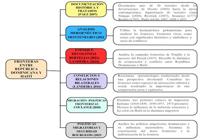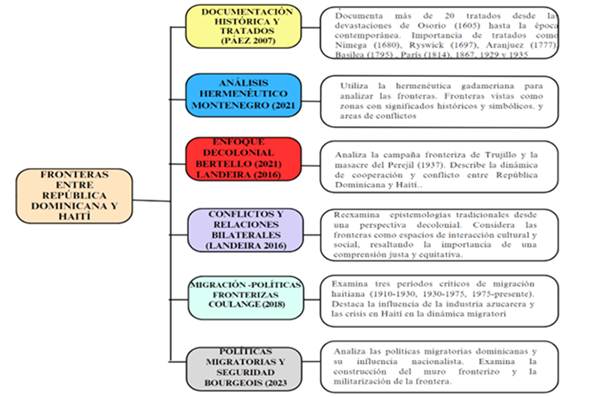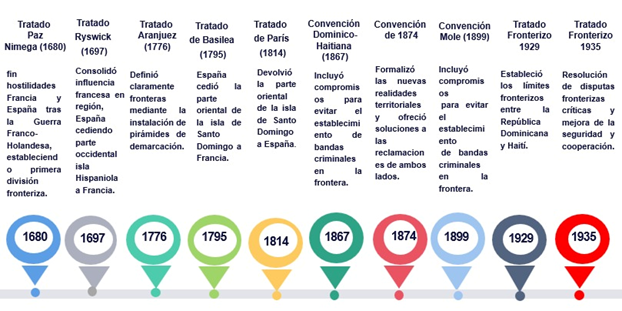Abstract
The border on the island of Hispaniola, which is now shared by the Dominican Republic and Haiti, has been a focus of discrepancies for over 300 years due to the conflicting interests present there. This study focuses on the hermeneutic interpretation of the most significant border treaties between the two nations. Using the perspectives of philosophers such as Hans-Georg Gadamer and Paul Ricoeur, the aim is to understand the multiple aspects surrounding these historical documents. Among the treaties analyzed are the Treaty of Nijmegen, the Treaty of Ryswick, the Treaty of Aranjuez, and the Treaty of Basel, among others more recent. The adopted approach is hermeneutic-qualitative, framed within a historical-documentary context, which allows for a deep and contextualized understanding of the mentioned agreements. Various treaties will be analyzed through tables and figures, examining aspects such as the authors’ intentions, and the social, cultural, economic, political, and military contexts in which these treaties were created, and their intersection with the security and defense of the Dominican Republic. Each treaty will be interpreted considering the global historical context of each country at the time of its drafting, which includes the social and economic conditions of the time, as well as the political relations between the two countries and with third parties. This analysis reveals that differences between the nations persist due to various difficulties in negotiations and the interpretation of the treaties. It concludes that the resolution of these border conflicts will likely have to be achieved in international courts, given the complexity and persistence of these differences.
Keyword:
border treaties; Dominican Republic; Haiti; national security; defense; hermeneutics

 Hermeneutical Approach to Dominican Republic-Haiti Border Treaties in the Context of National Security and Defense
Hermeneutical Approach to Dominican Republic-Haiti Border Treaties in the Context of National Security and Defense Thumbnail
Thumbnail
 Thumbnail
Thumbnail

